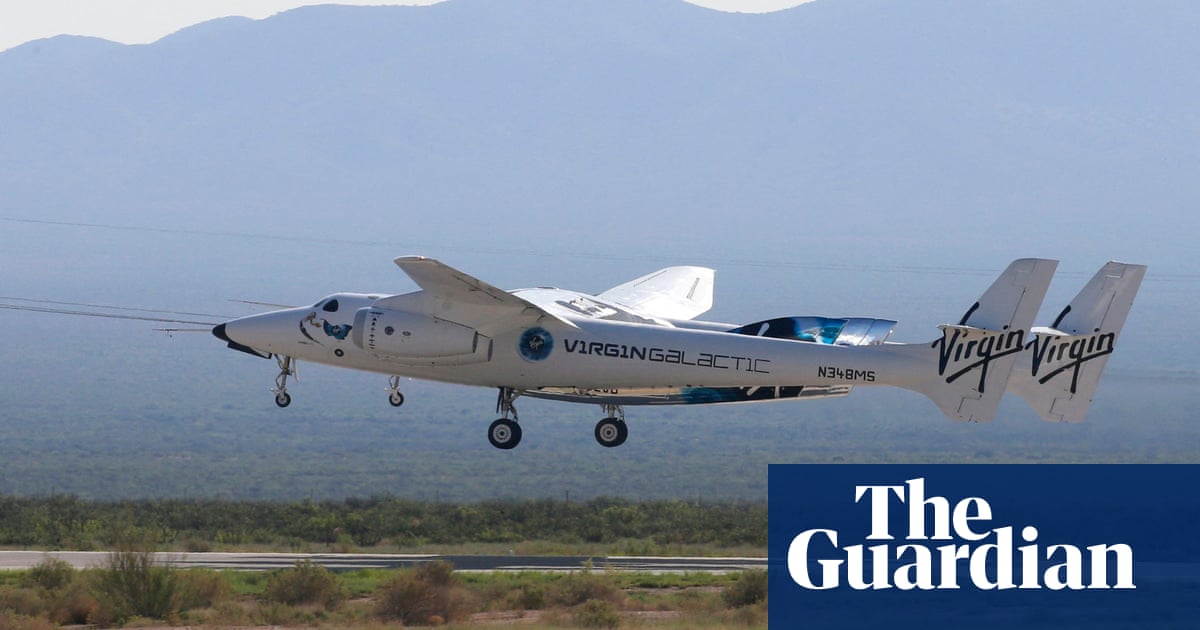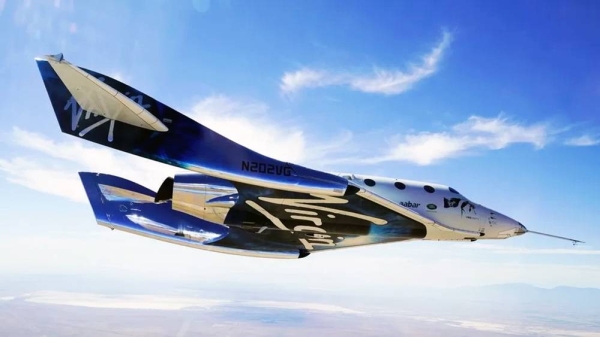
Sir Richard Branson officially entered the billionaire space tourism race on Thursday when his Virgin Galactic rocket plane, Unity, reached an altitude of about 53 miles.
Two Italian air force colonels and an aerospace engineer from the National Research Council of Italy joined a Virgin Galactic instructor and the plane’s two pilots on the 90-minute suborbital ride, which was streamed around the world.
At the apex of the flight, the crew experienced a few minutes of weightlessness and unfurled an Italian flag before the craft shifted into re-entry mode and glided back to the runway at Spaceport America near El Paso, Texas.
“Welcome to space, astronauts,” Sirisha Bandla, Virgin Galactic’s vice-president of government affairs and research operations, said during the live stream of the launch. The US Space Agency Nasa and the US air force both define an astronaut as anyone who has flown at an altitude of 80km (50 miles) or higher.
Virgin Galactic tweeted: “Welcome back to Earth, #Galactic01! Our pilots, crew and spaceship have landed smoothly at @Spaceport_NM.”
The flight marks a decisive moment for Virgin Galactic Holding Inc, the space tourism venture founded by Branson in 2004, as it inaugurates commercial service after several years fraught with development setbacks. It was the company’s sixth piloted sub-orbital space flight but the first to carry paying customers.
Branson’s company has sold about 800 tickets for trips on the aircraft at a cost of up to $450,000 a seat. The company plans to eventually build a large enough fleet to accommodate 400 flights annually.
Virgin is the latest billionaire-founded company to join the space tourism race, along with Jeff Bezos’s Blue Origin and Elon Musk’s SpaceX.
The potentially dangerous trip comes just days after the loss of the Titan submersible, which was taking wealthy customers to see the Titanic at the bottom on the ocean when it imploded, killing all five occupants. Such risky voyages are part of a growing trend for billionaires to spend vast sums on extreme expeditions.
The flight also comes two years after Branson himself rode along with five other Virgin Galactic personnel for the first fully crewed test spaceflight of Unity in July 2021. At the time, the company was targeting regular commercial service to begin in 2022 after additional test flights.
The mission of the Italian team was billed as scientific as well as touristic. One of the astronauts wore a special suit that measured biometric data and physiological responses. Another conducted tests using sensors to track heart rate, brain function and other metrics while in microgravity. A third experiment assessed how certain liquids and solids mix in that environment.
“This flight showcases our distinctive spaceflight system, which allows researchers to fly with their experiments, and our capacity to offer regular access to space for the science and technology community,” Bandla said.
In 2014, a pilot was killed when Virgin Galactic’s SpaceShipTwo craft crashed in the California desert.
Branson’s other space company, the satellite launch firm Virgin Orbit, announced it was closing down in May, just months after a rocket carrying the first satellites launched from British soil failed to reach orbit and was lost.












